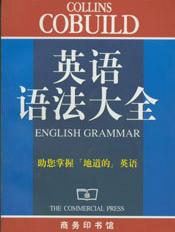牛津实用英语语法-第29章
按键盘上方向键 ← 或 → 可快速上下翻页,按键盘上的 Enter 键可回到本书目录页,按键盘上方向键 ↑ 可回到本页顶部!
————未阅读完?加入书签已便下次继续阅读!
accustomed to(参见第163节。)
afraid of(参见第27节B,第271节。)
anxious for/about(参见第 27节 C。)
ashamed of
aware of(参见第27节F。)
bad at/for
capable of
confident of
due to/for(参见第27节A。)
exposed to
fit for
fond of
frightened of/at
good at/for
interested in
involved in
keen on
liable for/to
nervous of
owing to(参见第27节A。)
pleased with
prepared for
proud of
ready forresponsible for/to
scared of
sorry for/about(参见第27节B。)
successful in
suspicious of
terrified of
tired of
used to(参见第163节。)
例句如:
He was absorbed in his book.
他在全神贯注地读书。
She is afraid/frightened/scared of the dark.
她害怕黑暗。
According to Tom it′s 2∶30.
据汤姆说现在是两点三十分。(汤姆说是两点三十分。)
He is bad/good at chess
他棋下得不好/好。
Running is bad/good for you.
跑步对你没好处/有好处。(不利于健康的/利于健康的)
They are very keen on golf.
他们非常喜欢打高尔夫球。
Drivers exceeding the speed limit are liable to a fine.
超速行车的司机应受到罚款。
The management is not responsible for articles left in customers′cars.
管理人员对于留在顾客车内的东西概不负责。
I′m sorry for your husband.
我很同情你丈夫。(我怜悯他。)
I′m sorry for forgetting the tickets.
我忘了票的事,很对不起。
I′m sorry about the tickets.
关于票的事,我很抱歉。
(关于good/kind等+of,如It was kind of you to wait,参见第26节B。)
?
'Amber demo'
97 动词和介词
?
关于动词+介词的复合结构在第三十八章中给出了许多例子。但后面接介词的动词还有很多,下面举出一些例子。在好的词典中可以查到更多的例子。
accuse sb of
apologize(to sb)for
long for
ask for/about
attend to
beg for
believe in
beware of
blame sb for
charge sb with(an offence)
pare sth with
ply with
conform to
consist of
deal in
depend on
dream of
fight with sb for
fine sb for
hope for
insist on
live on(food/money)
apply to sb/for sth
object tooccur to
persist in
prefer sb/sth to sb/sth
prepare for
punish sb for
quarrel with sb about
refer to
rely on
remind sb of
resort to
succeed in
suspect sb of
think of/about
wait for
warn sb of/about
wish for
例句如:
Do you believe in ghosts?
你相信有鬼吗?
They were charged with receiving stolen goods.
他们被指控收受赃物。
you haven′t plied with the regulations.
你没有遵守条例规定。
For a week she lived on bananas and milk.
她靠吃香蕉喝牛奶过了一星期。
It never occurred to me to insure the house.
我从来也没想到过去给房子投保。
They persisted in defying the law.
他们多次犯法。
When arguments failed he resorted to threats.
他争辩不过别人的时候,就进行威胁。
注意:feel like+名词/代词意指“觉得想吃(喝)某东西或做某事”:
De you feel like a drink/a meal/a rest?
你想喝点什么/吃顿饭/休息一下吗?
feel like+动名词意指“觉得想做某事”:
I don′t feel like walking there.
我不想步行到那里去。
(关于like在比较中的用法参见第21节G-I。)
被动态动词当然可以接by+施动者,但它也可以接其他介词:
The referee was booed by the crowd.
裁判员遭到了观众的起哄。
The referee was booed for his decision/for awarding a penalty.
裁判员由于所作的裁决/所做出的犯规处罚而遭到起哄。
?
'Amber demo'
98 介词后的动名词
?
A 前面第89节中已经提到过,紧接在介词后的动词必须用动名词形式:
He left without paying his bill.
他没有付账就走了。
I apologize for not writing before.
我此前未能写信,谨表歉意。
She insisted on paying for herself.
她坚持要付她自己的那一份钱。
Before signing the contract,read the small print.
在签署合约以前,请详读小号字印出的内容。
(另参见第259节。)
还请注意某些名词+介词+动名词结构:
There′s no point in taking your car if you can′t park.
如果那里不能停放车子的话,你开车去就没多大意思了。
What′s the point of taking your car if you can′t park?
如果无处停放车子,你开车去还有什么意思呢?
Is there any chance/likelihood of his changing his mind?
他有可能改变主意吗?
Have you any objection to changing your working hours?
你反不反对改变你的工作时间?
I am in favour of giving everyone a day off.
我赞同给大家放一天假。
B 介词后面必须带动词的动名词形式,这一规则的唯一例外是except和but(介词)。在它们后面带动词原形:
I could do nothing except agree.
我除了同意,没有别的办法。
He did nothing but plain.
他只是抱怨,什么也不做。
但是如果but用做连词,即如果它引导从句,它的后面就可直接跟完整的不定式或动名词:
Being idle sometimes is agreeable,but being idle all the time might bee monotonous.
有时清闲无事是令人惬意的,但总是闲呆着就可能变得单调乏味了。
To be idle sometimes is agreeable,but to be idle all the time…(译文同上。)
?
'Amber demo'
99 介词/副词
?
许多词既可作介词又可作副词:
He got off the bus at the corner.(介词)
他在拐角处下了公共汽车。
He get off at the corner.(副词)
他在拐角处下车。
这些既可作介词又可作副词的词中最重要的有above,about,
across,along,before,behind,below,besides,by,down,in,near,off,on,over,past,round,since,through,under,up:
They were here before six.(介词)
他们6点之前在这里。
He has done this sort of work before.(副词)
他以前干过这种工作。
Peter is behind us.(介词)
彼得在我们的后面。
He′s a long way behind.(副词)
他远远地落在后面。
She climbed over the wall.(介词)
她爬过墙头。
You′ll have to climb over too.(副词)
你也得爬过去。
When the meeting was over the delegates went home.(副词)
会议结束后代表们各自回家了。(这里over=finished结束)
The shop is just round the corner.(介词)
商店拐过街口就是。
e round(to my house)any evening.(副词)
晚上有空来我家串门。
He ran up the stairs.(介词)
他跑上楼梯。
He went up in the lift.(副词)
他乘电梯上去了。
这些词中许多可以用来构成短语动词(参见第三十八章):
The plane took off.
飞机起飞了。(离开了地面)
He came round.
他恢复知觉了。(恢复了意识)
?
'Amber demo'
第十章?动词概说?
?
'Amber demo'
100 动词的分类
?
A 英语动词分两大类:
1 助动词:
be have do
can could may might must ought shall should will would need dare used
2 所有其他动词都可称做普通动词,如:
work sing pray
B be,have,do,need和dare与普通动词一样,有不定式和分词形式,但是can,could,may,might,must,ought,shall,should,will 和would既没有不定式形式也没有分词形式,所以只有几种非常有限的形式。
在研究助动词之前,先对普通动词的形式作简要的研究可能是有益的,因为普通动词多半加助动词以作时态变化。
?
'Amber demo'
普通动词?
?
'Amber demo'
101 主动态动词的主要变化
?
主动态动词的主要变化请参见下表中的例子:
==================================
ABC Amber CHM Converter v6。22
Trial version
==================================
规则动词的一般过去式和过去分词的构成都是在原形后加d或ed,有时原形的末尾辅音字母必须双写,如slip,slipped。(参见第355节拼写规则。)关于不规则动词,参见第364节。现在分词和动名词的变化总是规则的,其构成是在原形后加ing。在原形后加ing时,关于末尾的辅音字母的双写规则,这里也同样适用。(参见第355节拼写规则。)
?
'Amber demo'
102 主动语态形式一览表
?
A 形式
现在一般时式 he works(参见第172节。)
进行式 he is working(参见第164节。)
完成式 he has worked(参见第182节。)
完成进行式 he has been working(参见第190节。)
过去一般式 he worked(参见第175节。)
进行式 he was working(参见第178节。)
完成式 he had worke






